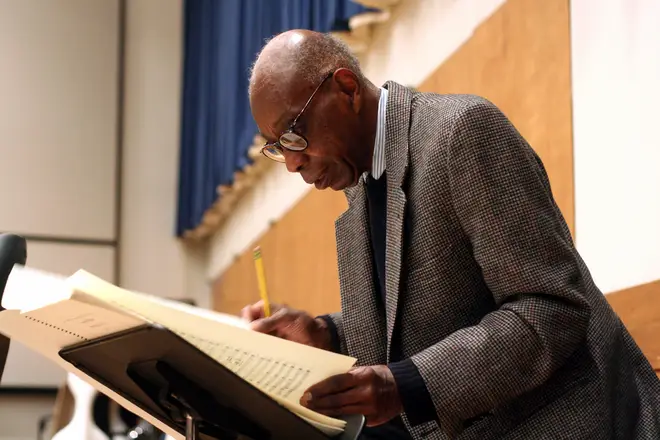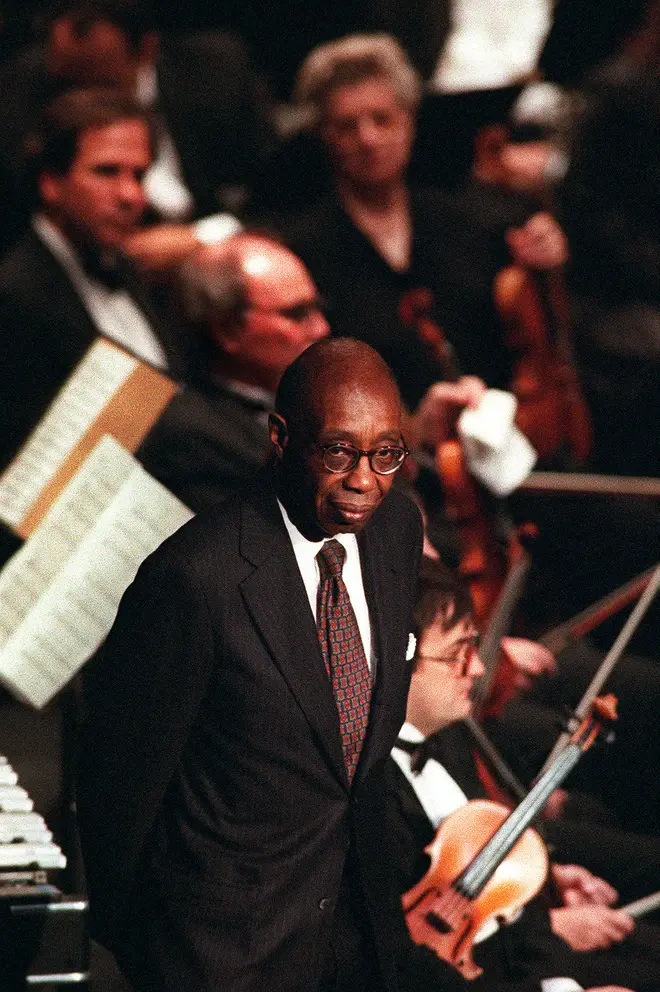Remembering George Walker, the first Black composer to win the Pulitzer Prize for Music
27 June 2022, 20:28

On what would have been his 100th birthday we celebrating the trailblazing American composer George Walker and his miraculous story of “firsts”.
George Walker (1922-2018) was one of America’s great composers, born 100 years ago today (27 June).
A trained pianist and organist, he wrote nearly 100 compositions, from symphonies and concertos to delicate song cycles and solo piano works.
In 1996, Walker broke an extraordinary colour barrier. With his work for voice and orchestra Lilacs, a setting of Walt Whitman poetry premiered by the Boston Symphony Orchestra, he became the first African American to win the Pulitzer Prize for Music.
George Walker lived a life of “firsts”. On top of his 1996 accolade, he was one of the first Black graduates of the Curtis Institute in Philadelphia in 1945, the first Black musician to play New York’s Town Hall in 1945, the first Black recipient of a doctorate from the Eastman School in 1955 and the first Black tenured faculty member at Smith College in 1961.
Read more: 9 Black composers who changed the course of classical music history >

George Walker Lilacs // London Symphony Orchestra, Nicole Cabell & Sir Simon Rattle
Who was George Walker?
George Theophilus Walker was born on 27 June 1922 in Washington, D.C. to a father from the West Indies, whose own father was a slave.
Walker’s mother introduced him to music at a young age, starting him on piano lessons at the age of five. Nine years later, the young prodigy was invited to Washington’s Howard University to give his first public recital.
Aged 16, Walker was granted a scholarship to Oberlin College in Ohio. After graduating, he enrolled at the prestigious Curtis Institute of Music in Philadelphia, where he studied composition with Adagio for Strings composer Samuel Barber and piano with Rudolf Serkin, who was widely considered one of the greatest Beethoven interpreters of the last 100 years.
In the late 1950s, Walker moved to Paris to study for two years with Nadia Boulanger, credited as the 20th century’s most famous music pedagogue for having taught Aaron Copland, Leonard Bernstein and Philip Glass, among others.
Boulanger was allegedly so impressed with Walker’s musicianship that she made him exempt of her usual student requirements, telling him he could bring anything he wanted to show her at lessons.
Read more: Nadia Boulanger, the 20th century’s greatest music teacher >

‘African American’ – but never just ‘American’
Walker was always referred to as an African American composer, rather than just ‘American’. This doesn’t do justice to his status as one of the great American composers.
In an article from January 2020, the LA Times criticised how his music most often appears in concert programmes in Black History Month.
Walker spoke about the label in a 1987 interview with broadcaster Bruce Duffie, saying: “I’ve benefited from being a black composer in the sense that when there are symposiums given of music by black composers, I would get performances by orchestras that otherwise would not have done the works.
“The other aspect, of course, is that if I were not black, I would have had a far wider dispersion of my music and more performances.”
What does George Walker’s music sound like?
Walker’s music is routed in the Western classical tradition in which he was trained, but is influenced by the haunting melodies of African American spirituals and jazz.
Above all, composer Jeffrey Mumford tells NPR, “His music is always characterised by a great sense of dignity, which is how he always comported himself.”
As a music lecturer at Lorain County Community College in Ohio, Mumford teaches Walker’s music to his students. “His style evolved over the years; his earlier works, some written while still a student, embodied an impressive clarity and elegance,” he says.

GEORGE WALKER: "Lyric for Strings" (Original Version)
George Walker’s later life
In his later years, Walker enjoyed a successful career in academia, teaching at New York’s New School, Rutgers University in New Jersey, where he was the Chair of the music department, and the Peabody Institute, to name a few.
Walker was awarded two Guggenheim Fellowships, an American Academy of Arts and Letters Award, and honorary doctorates from six institutions.
He died, an esteemed composer and academic, at 96 years old in New Jersey, in 2018. He is survived by two sons: Ian Walker, a playwright, and Gregory Walker, a violinist and former concertmaster of the Boulder Philharmonic Orchestra in Colorado.
In Washington D.C., 17 June – his birthday – is recognised as George Walker Day.
How can I listen to George Walker’s music?
Lyric for Strings, his most performed work, is completely haunting and beautiful. Walker dedicated it to his grandmother, who died when he was a student at the Curtis Institute. You can listen to it here.
Lilacs, the Whitman setting that won Walker his Pulitzer, can be found here.
And you can explore even more of his music on Spotify here.









































